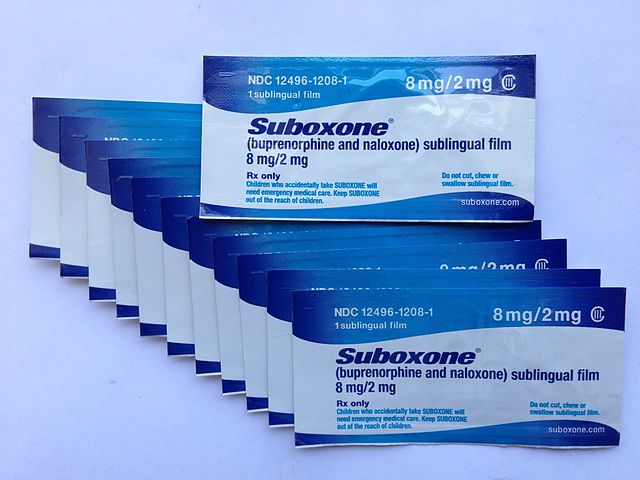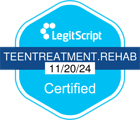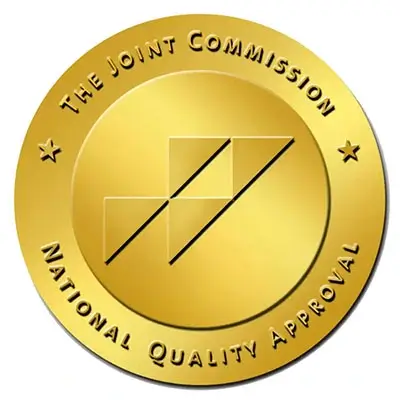Alcoholism is a common addiction that recovery specialists face and there are a host of treatments available to help those who are dealing with an alcohol dependency.
Because alcoholism can vary so much from patient to patient, the treatment methods used can vary as well. Some of these involve intervention and counseling, while other more severe cases may require medication and in-patient care.
One of the medications people ask about when dealing with alcohol addiction is Suboxone and Suboxone treatment for alcoholism. This drug is commonly used to deal with withdrawal from opioids, but it can have other uses as well in treating addiction.
Below, we’ll explain what Suboxone is, if it can help with alcohol withdrawal, and go over other medications that may be used when treating alcoholism.
What Is Suboxone?
Suboxone is a mix of two different medications, buprenorphine and naloxone which work in concert to help curb withdrawal symptoms that can occur when quitting opioids.
Suboxone works by blocking the certain receptors normally activated by opioids, the result can be a decrease in cravings for the drug as well as reduced withdrawal symptoms.
Suboxone requires a prescription and although it is less likely to be addictive than other alternatives, it still poses an addiction risk. So patients should be under the care of a professional recovery specialist while taking Suboxone.
Some symptoms of alcohol withdrawal can be similar to those of opioids, but Suboxone for alcohol dependence or withdrawal symptoms is not currently a recognized treatment. While some patients have reported its use to be of benefit, the manufacturer of Suboxone does not recommend it for this use.
However, other medications can be used for the treatment of alcohol withdrawal, and we’ll go over that in the following sections.
What is Alcohol Withdrawal?
Withdrawal from alcohol is known as alcohol withdrawal syndrome (AWS) and describes a series of unpleasant symptoms your body will go through when you quit drinking alcohol after a period of regular usage.
The severity of AWS can vary greatly and depends on the amount of alcohol consumed and the length of time that the chronic drinking occurred.
Some of the milder symptoms of AWS can include:
- Nausea
- Anxiety
- Headaches
- Vivid dreams
- Fatigue
- Sweating
- Cravings for alcohol
When patients have been drinking for extended periods, such as years, the withdrawal symptoms can be more severe.
Common symptoms of acute AWS:
- Disorientation/confusion
- Mood swings/anger
- Hallucinations
- Seizures
Some of these more severe symptoms can occur suddenly and at the same time. This condition is generally referred to as delirium tremens (DT). DT can include a sudden onset of confusion, shaking, delirium, and seizures. This condition is very serious and considered a medical emergency.
If you are someone you know is experiencing severe alcohol withdrawal, you should contact a medical professional immediately.
What Medications Are Used To Treat Alcoholism And Withdrawal?
When seeking professional treatment for alcoholism, the first step will usually be a detox period. This can last anywhere from two days up to a week. During this time the patient will be monitored and they may be prescribed a sedative.
The most common medications during this period will be benzodiazepines which help to alleviate some of the more unpleasant symptoms of AWS. Once the detox is complete, the patient will be weaned off of these sedatives until they are no longer necessary.
After the initial detox phase, the patient will then enter a period of counseling and behavioral modification therapies to help them deal with underlying issues related to their drinking as well as to learn tools to help deal with cravings and other triggers.
During this phase of treatment, certain additional medications may be prescribed to help prevent cravings and the chance of relapse.
Disulfiram (Antabuse)
When taken, this medication causes extremely unpleasant symptoms if the patient drinks alcohol. These symptoms can be vomiting, sweating, and rapid heart rate. The goal is to dissuade the patient from drinking due to the uncomfortable side effects caused by the drug.
Disulfiram works by interfering with the body’s natural process for breaking down alcohol once consumed. This causes your body to have a strong negative reaction shortly after drinking.
Acamprosate (Campral)
This medication has been shown to reduce cravings for alcohol and also help alleviate some withdrawal symptoms such as insomnia, anxiety, and other milder symptoms.
The patient must have already quit drinking before starting treatment with acamprosate. Overall, the drug works best when used in conjunction with a proper addiction treatment program.
Naltrexone (Revia)
This medication binds with certain receptors to decrease cravings for alcohol. If the patient does still drink, the pleasure from drinking is often decreased to Naltrexone, which further works to dissuade drinking.
Due to Naltrexone sounding similar to the drug in Suboxone (Naloxone), these two drugs are often confused and it’s part of the reason some people may think of using Suboxone to treat alcoholism.
Naltrexone also comes in an injectable form that is administered by a doctor or licensed practitioner. The injections are generally performed once a month. The reason for injections is that they help with patient compliance if it is too difficult for them to take the oral version regularly.
Can Suboxone Treat Alcoholism?
In short, the answer is no. While several medications can be effective when dealing with alcohol withdrawal and cravings, Suboxone has not been shown to be one of them.
But it’s important to note that it’s not uncommon for those dealing with addiction to be addicted to several substances when seeking treatment. So this may include the use of opiates and alcohol, which will both require treatment and Suboxone may be used in those cases.
If any medications are needed, they always need to be prescribed and monitored by a medical professional with experience in addiction and recovery.
More Information About Alcoholism And Treatment
Alcohol addiction can be a complex disorder that varies greatly between individuals. The symptoms and signs of addiction can also vary as some individuals may be able to function at a high level despite being addicted. However, even if functioning, the immense physical and mental health damage remains.
If you or someone you know is suffering from alcohol addiction, the Hope Institute can help provide the latest treatments to aid in the recovery process. We use different approaches, each tailored to the individual to make the journey to sobriety as smooth as possible.
Contact The Hope Institute today and speak with our caring and compassionate staff about alcohol addiction treatments and what we can do for you.
Sources:
https://www.aafp.org/pubs/afp/issues/2016/0315/p457.html


